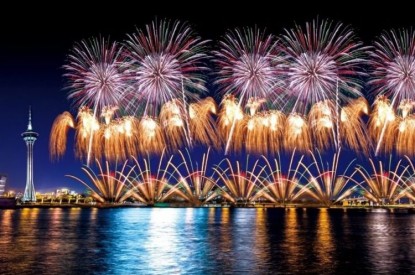Správy operátora
China – Macau’s Golden Week fails to reignite casino industry
By Phil - 9. októbra 2020
Macau’s Golden Week failed to deliver with just 139,280 visitors to the SAR during the usually bustling holiday period, representing a fall in visitation of 85.7 per cent compared to last year.
JP Morgan analysts DS Kim, Derek Choi and Jeremy An said: “Choppy demand and dwindling hope of ‘return to normalcy in 2021’ make us acknowledge the sector’s risk-reward isn’t as attractive as we had envisioned, despite seemingly undemanding valuation (on 2022, not 2021). We neutralize our bullish view on Macau SAR gaming to reflect frustratingly poor re-opening trends, mounting uncertainty on VIP and downside risks to consensus.”
“We were overly hopeful on the prospect of pent-up demand, which we thought would outweigh the nuisances related to travel arrangement to Macau and stricter capital control,” they added. “Plus, a broadening clampdown on illegal/overseas gambling in China is creating jitters among agents/players at unprecedented levels, in turn throttling any VIP/high-end demand recovery (which, by the way, was touted and supposed to lead the initial rebound). We see Wynn carrying the biggest estimate and valuation risks due to its relatively oversized VIP exposure.”
The analysts highlighted the problems caused by the current manual-led visa process, whereby visitors must register in person and then wait for up to 10 days for approval.
“The entire process is not insurmountable, but it’s probably annoying enough to dissuade many people – especially mass and casual players – from considering Macau as a preferred destination,” they explained. “We do think this is a transitory issue, as it doesn’t make sense to us that a virus has negated anyone’s desire to gamble, whereas a reluctance to travel across the border will gradually go away.
“Moreover, we think suspension of kiosks is a temporary measure (to control the initial pace/flow of reopening) and machines should re-open if and when the government feels more comfortable on traffic-flow between Macau and the mainland.”
Whilst the recovery remains bleak, Macau’s six casino operators look odds on to keep their licences, but it is likely to come at an extra cost.
Brokerage firm Sanford Bernstein Research said: “We view the scenario where one or more of the U.S. casino operators lose their gaming concession to be remote, unless the [U.S.-China] relationship sours significantly further and we see directed action against U.S. businesses in China, which would raise risk levels in Macau as well.”
“Directly attacking US business (especially ones that have been solid partners to the Macau government) is not a very likely course of action. The key considerations under such a scenario would revolve around what economic impact the new concession regime would have. There are many levers at the government’s disposal – e.g., altering the gross gaming revenue (GGR) tax, imposing taxation on gaming profits, imposing taxation on dividends, mandating upfront fees.”
“Looking at other jurisdictions (Singapore, Australia, Malaysia) that have gone through licence renewal processes in recent years, an increase in economic rent is not far-fetched,” the report said. “However, most investors have factored in potential economic leakage in their longer-term views.”



